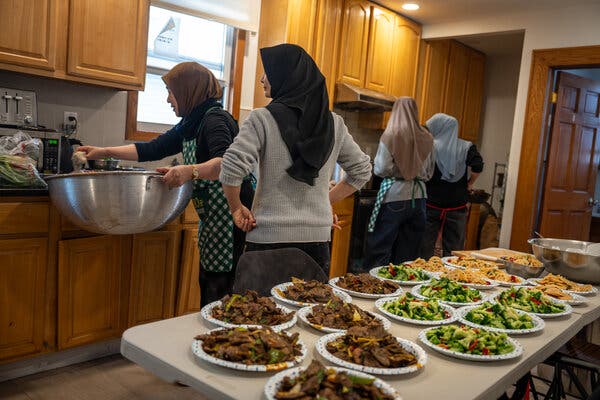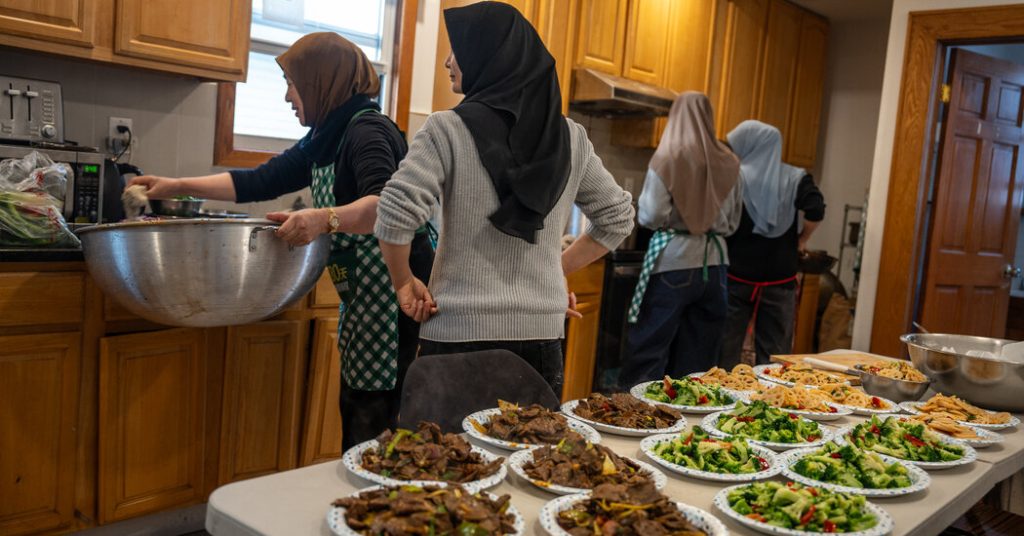
The New New World
Chinese Muslims, After Finding a Refuge in Queens, Now Fear Trump
At a shelter in the Flushing area of New York, Hui Muslims who fled oppression in China are concerned about the president-elect’s vows to tighten asylum policy.
Supported by
SKIP ADVERTISEMENT
- Dec. 31, 2024
They survived re-education camps in China’s western Xinjiang region. They were released from detention centers and psychiatric hospitals. They watched their loved ones disappear one by one and feared when it would be their turn.
Then they managed to get out of China and reached the soil of the United States, many by trekking through the brutal jungle in Panama known as the Darién Gap on their way to the U.S. southern border.
They are Hui Muslims, a state-recognized ethnic minority group in China, where the government is determined to crack down on Islam. As President-elect Donald J. Trump promises to build detention camps and enlist the military to carry out mass deportations, the future of this group of immigrants is precarious. Deportation could mean years in jail or labor camps.
“My mother told me to stay here,” said Yan, a single mother who came to the United States in July with her 10-year-old son, Masoud, through the Darién Gap. “‘If you come back,’” she quoted her own mother as saying, “‘there’ll be no good outcome for you. Who knows — they might even sentence you to life imprisonment.’”
In China, Yan was detained by the police for 15 days, then sent to a psychiatric hospital for more than 20 days because her phone showed that she had made small donations to two online Quran prayer groups. The police said she supported religious terrorists and called her a “radical religious fanatic.” She considers herself not very religious and doesn’t even wear a head scarf.
A growing number of Chinese are migrating to escape bleak economic prospects and political oppression. Many have joined Venezuelans, Ecuadoreans and Haitians trying to reach the United States through the Darién Gap. More than 38,000 Chinese migrants were temporarily detained on the southern border of the United States in the 2024 fiscal year, up from 24,000 the previous year, according to U.S. Customs and Border Protection. It’s not clear how many of them are Muslims.
We are having trouble retrieving the article content.
Please enable JavaScript in your browser settings.
Thank you for your patience while we verify access. If you are in Reader mode please exit and log into your Times account, or subscribe for all of The Times.
Thank you for your patience while we verify access.
Already a subscriber? Log in.
Want all of The Times? Subscribe.
Advertisement
SKIP ADVERTISEMENT
Source: https://www.nytimes.com








More Stories
India Plane Crash: What Investigators Might Examine
Washington Post Cancels Ad From Groups Calling for Trump to Fire Musk
As Trump Attacks D.E.I., Some on the Left Approve